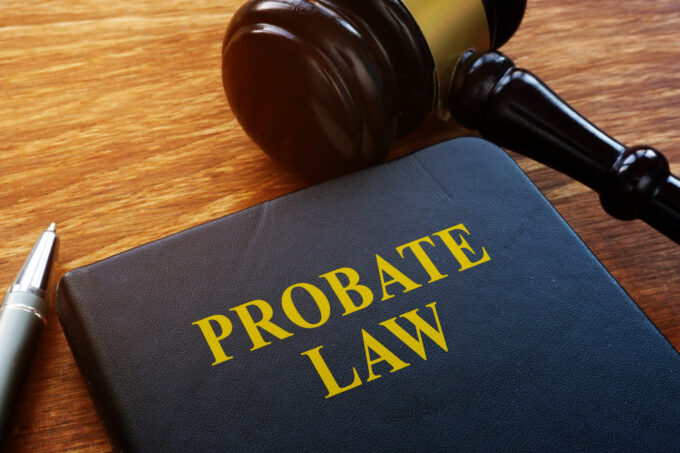Estate planning is deciding what will happen to your possessions after death. If you spend your life collecting wealth, properties, and valuable items, you must ensure their safety and make sure that they fall into the right hands.
If you do not lay out a plan and an effective strategy to distribute your assets, you will lose control over them after you die. Gallup’s recent polls suggest that less than half of the American adult population, i.e., 46% have a will. A major reason is a widespread belief that Wills and trusts are mostly for those with higher income levels. It consequently makes the younger population less likely to draw up their Wills.
Contrary to this belief, a will protect your personal and business assets irrespective of the volume. Therefore, no matter how few or more assets you own, you must ensure that your future generations remain financially secure and everyone gets an equal share of the wealth according to your wishes.
What is Estate Planning?

Estate planning is arranging the transference of assets in anticipation of death. It involves naming beneficiaries, an executor, naming guardians of minors, and giving away personal belongings, to name a few.
After you pass away, your will and final testament undergo probate. It is a period during which the authenticity and reliability of your will are assessed. You can get help with probate from Trust and Will at different prices. It will help ease the probate process legally and manage your assets in the best way possible.
It also involves appointing an estate executor. The executor is a neutral and trusted individual appointed by the estate’s owner to execute the will according to the owner’s wishes. It is better if the executor is not one of the named beneficiaries to avoid possible conflict of interest. It can be your lawyer, a trusted friend, or a relative. If you do not name an executor, the court will appoint one for you during probate.
You can even exclude someone from your will or trust if you wish. Alternatively, you can donate part of your wealth to charity organizations.
Similarly, you can transfer power of attorney to someone in case you cannot manage your assets. That person will be responsible for allocating your assets as they deem appropriate.
Now, let us look into why estate planning is important.
1. To Create Your Legacy
One of the most important reasons for estate planning is laying the foundation of your legacy. It gives you full control over your assets and ensures even distribution. Without a will, the wealth distribution process will be costly and time-consuming, leading to unwanted inheritors and loss of legacy.
A will covering all your assets with fair wealth distribution ensures that the beneficiaries receive what they are entitled to, keeping your legacy intact. It provides transparency to your loved ones and minimizes disputes.
Alternatively, you may lose your legacy and control if the state decides to distribute your assets. Moreover, your creditors may ask for their rightful return if you leave without arranging for debt repayment. To minimize disputes, you must assign part of your assets as paying off to creditors.
2. Expedite the Probate

There are ways to make the probate as seamless as possible. One sure way is to give away most of your property and belongings within your lifetime, leaving fewer assets to distribute among beneficiaries. It makes the estate settlement process a lot easier.
You can do this by creating trust. A revocable trust administrator can distribute the assets according to your wishes without involving the court. You may include your investments, vehicles, property, and bank accounts in the trust, directly transferring them to your named beneficiaries bypassing the probate.
Another way to expedite the probate is to create joint ownership of assets. In the event of your death, your share of ownership will directly transfer to your partner.
3. Protects Minors
Effective estate planning accounts for securing minors’ futures. You can either set up a trust they can access without being of age or appoint a legal guardian if you become incapacitated. You can do this while you are still young with small children. It will give you peace of mind, knowing that your children are secure if something happens to you.
If you fail to name a legal guardian for minors in your will, the court will appoint one. It can be a close family member or relative. However, parents should decide who should take care of their children well in time in the form of a will.
4. Tax Planning

The better you plan your estate, the more likely you will pay hefty tax bills at the end of the year. When someone dies, leaving behind their wealth, every piece of property and possession goes through a taxation process as per its value. The beneficiaries have to declare any capital gains from inheritance.
One way to make the taxation process smooth and less costly is to leave named beneficiaries and assign a certain amount of wealth to each. It will eliminate the need for the court to name the beneficiaries and pay a hefty tax fee.
If you own the family house, transfer it to your spouse or adult children within your lifetime. Similarly, you can choose to transfer certain properties to your loved ones. The court will not consider items you give away while alive as part of the will after your passing, thus reducing taxes.
When it comes to securing your family’s future, consulting with a skilled estate planning attorney is paramount. Their expertise ensures a comprehensive approach to managing your assets. For personalized guidance tailored to your unique needs, schedule a consultation with an experienced estate planning attorney who can navigate the intricacies of your financial legacy.
Conclusion
It would help if you did not ignore the importance of effective estate planning. Gain control over your assets and decide who will get how much share of your wealth after your passing while you are still alive. Other things include naming minors’ guardians in your will. It is better to draw a Will while you are still young for peace of mind.
Moreover, keep your legacy intact and make sure that all your beneficiaries get a fair share. You can also exclude certain people from inheriting your property. If you do not make a will, the court has the power to decide according to State laws. However, it can be a time-consuming and costly process. Therefore, it is better to draft your own.
Furthermore, the more properties and belongings you give away within your lifetime, the more tax benefit you will get. It will also help expedite the probate process.
Therefore, protect future generations and leaves behind a legacy by ensuring proper estate planning.









